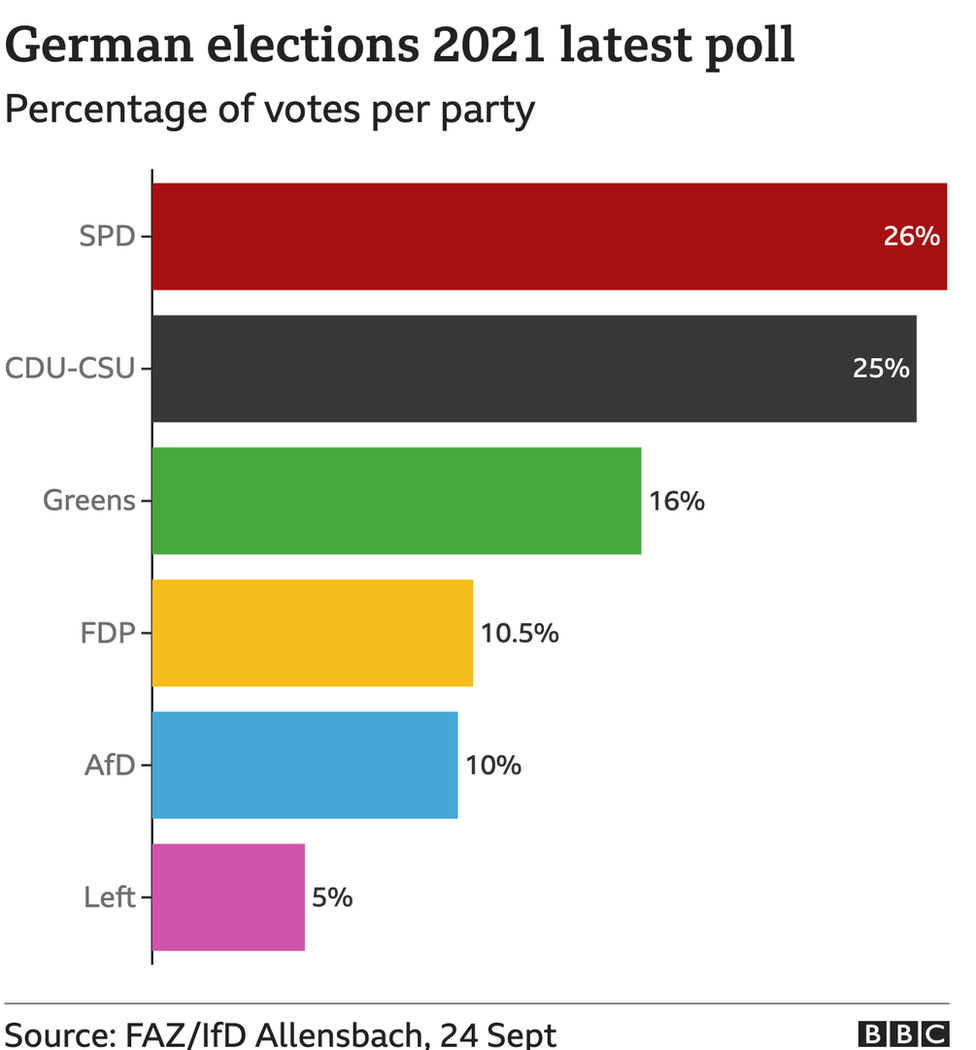
Posted on 10/05/2021 2:43:16 AM PDT by Cronos
Germany's four biggest parties have held a series of bilateral meetings on Sunday to communicate their positions before deciding on further steps in forming a new government.
The centre-left Social Democrats, who won Germany's national election last month, first met with the Free Democrats before holding talks with the Greens.
The latter two had already met on September 29, though it is unusual for smaller parties to make the first move.
The sessions in Berlin — that some observers described as akin to a political "speed dating" — were rounded off by a meeting between the Free Democrats and the CDU/CSU, which suffered a narrow defeat on September 26.
All representatives insisted they held "constructive" talks but refused to give details so as not to jeopardise negotiations.
Social Democrat leader Olaf Scholz has said he wants to form a new government before Christmas. He currently stands the best chance of succeeding Merkel as chancellor after 16 years in office.


Voters under 30 preferred the Greens on the left (22%) and the libertarian FDP (20%) on the right by a wide margin, according to this exit poll from Forschungsgruppe Wahlen.
In contrast, the over-60s voted for the centre left (35%) and centre right (34%). Only 9% went for the Greens and 8% for the FDP.
But because most of the electorate is older, the big-tent parties of the left and right came out ahead.
At 735 seats, this German parliament looks set to be the biggest ever. But because of the German electoral system, no one - not even the election authorities - knew just how big it would be.
The top candidate in each constituency gets a seat: there are 299 of them. A further 299 seats are reserved for the party lists in the 16 federal states, or Bundesländer. Voters rank the candidates in order of preference.
But that’s only 598, so where do the extra 137 seats come from?
This is where second-preference votes come into play, based on the population in each states and how many votes go to the second-placed party in each.
Confused yet? You should be.
Parties need to clear the 5% minimum vote share, or win three constituency seats, in order to enter parliament.
This is how the far-left party, Die Linke, only narrowly scraped in. Its share of the vote fell by almost half from the last elections, in 2017, from 9.2% to 4.9%.
However, the three constituencies it won, in Berlin and Leipzig, saved it from political oblivion at federal level.
Disclaimer: Opinions posted on Free Republic are those of the individual posters and do not necessarily represent the opinion of Free Republic or its management. All materials posted herein are protected by copyright law and the exemption for fair use of copyrighted works.